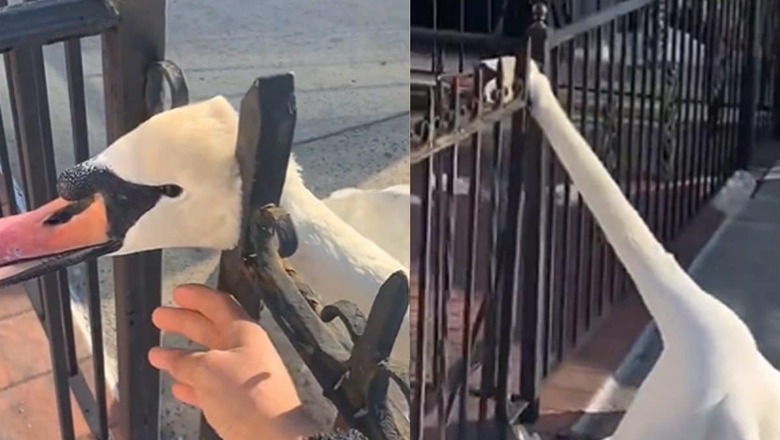
views
A video of a swan stuck in a fence has become popular on social media, causing both fascination and concern among viewers. It was filmed by a passerby at an unknown location and posted on platform X by a user. In the footage, the swan can be seen struggling to escape from the metal bars of the fence. After several attempts to break free, the bird appeared to be tired and out of energy.
Luckily, someone stumbled upon the situation and quickly took action. Using a gentle approach and strategic movements, the individual successfully released the swan from its predicament.
Swan was stuck in a fence pic.twitter.com/9ZV8nUzU84— Champagne Sloshy (@JoshyBeSloshy) February 16, 2024
The social media post has garnered over 21 million views already. In Leicestershire, UK, a swan was earlier saved from being trapped in a canal lock. The incident was reported by BBC, in which Firefighters were called to the Freemens Meadow Lock and using an inflatable raft, the swan was rescued and taken to safety.
According to the RSPCA, a bird had become stuck between the lock gate and a stone wall, and opening the gates would have resulted in its crushing. Animal rescue officer Jack Curran retrieved the bird and took it to a wildlife centre for rehabilitation.
In some cases, Swans may experience extreme emotional distress and take their own lives when they lose their mate or offspring. This can cause them to refuse to eat and ultimately perish or for young swans, they may even resort to drowning themselves.
Although heartbreaking accounts exist of swans showing distress and deteriorating health following the loss of a mate or cygnets, there is no conclusive evidence to suggest that they purposefully end their lives. The notion that swans deliberately take their own lives lacks scientific substantiation.
For instance, Mute swans are recognized for developing lifelong bonds with a partner, to the extent that they can suffer from a broken heart and even die when their mate passes away. This strong attachment is also evident in their behaviour when their young cygnets die.
There are reports of swans displaying sorrowful or distressed behaviours, particularly after losing a mate or unborn cygnets. However, there is no definitive evidence supporting the notion that swans engage in intentional self-harm. While their emotional responses to loss are intriguing, attributing human-like motives to their behaviours may oversimplify the intricate nature of avian emotions and instincts.


















Comments
0 comment